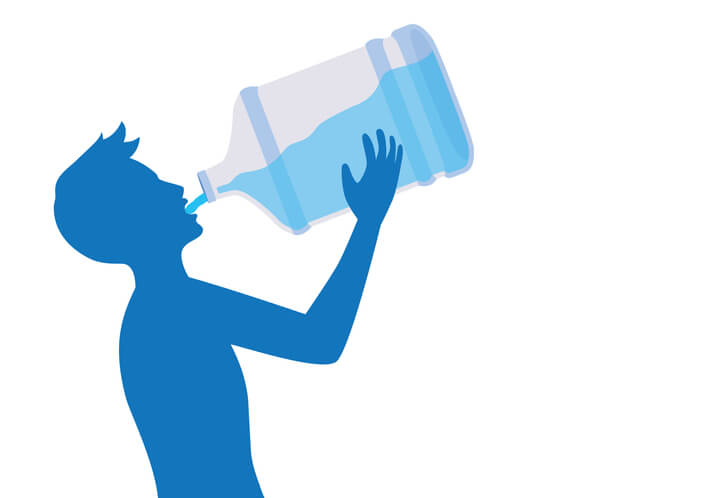
Are You Overhydrating?
By Joy Stephenson-Laws, JD, Founder
There’s no shortage of stories online about people committing to drinking a gallon of water a day and claiming this leads to better skin, less cravings for unhealthy foods, weight loss and more benefits.
Water is one of the six basic nutrients you need to live. The others are protein, carbohydrates, fats, vitamins and minerals. But water is the only nutrient where absence will cause death within days.
In addition to keeping you hydrated, water helps us digest our food, enhances the absorption of nutrients from food and get rid of waste.
“All the cells and organs need water to function. Water serves as a lubricant. It makes up saliva and the fluids surrounding the joints. Water regulates the body temperature through perspiration. It also helps prevent and relieve constipation by moving food through the intestines,” according to the National Institutes of Health (NIH).
I have also previously blogged about how being dehydrated may alter brain shape and activity and affect task performance.
So, it’s clear that we need water and being dehydrated is no good. But do we really need to be drinking water constantly throughout the day, especially when we do not feel thirsty? And is a gallon of water a day really necessary?
Dr. Mitchell Rosner, who was interviewed in this report, believes that many people are drinking a lot more water than they actually need. And they could be putting themselves in dangerous situations.
You may have heard of water intoxication, sometimes referred to as hyponatremia.
Basically, hyponatremia is the result of your blood sodium levels getting too low. Sodium is a mineral needed for maintaining blood pressure. We also need sodium for our nerves, muscles and other body tissues to function properly.
“Due to shifts in water between the blood and cells that occur when sodium levels fall (a condition called hyponatremia), cells can swell—and this is especially worrisome in the brain, where the skull limits the capacity for this swelling and leads to rises in pressure in the brain,” says Dr. Rosner.
“This eventually leads to a range of symptoms that can be mild, such as a headache and nausea, or more severe, such as a seizure or death.”
In most cases, it would take a lot of water in a short period of time to cause hyponatremia. But Dr. Rosner suggests that our bodies have a “great hydration sensor” and that you should “listen to your body and respond accordingly.”
“The notion that you should drink to prevent thirst makes no sense. Humans don't need to be told when and how much to drink (except in rare medical circumstances). Thirst is our innate hydration sensor,” says Dr. Rosner.
In other words, if you feel thirsty, drink up!
This is quite the opposite of some healthcare professionals who might say you should drink water before you even feel thirsty. We really have to take both points of view as plausible and then determine what is personally best for us.
So how much water should we be drinking?
As with most things regarding our health, there is not a black or white answer. How much water you need depends on your age, activity levels, whether you are taking certain medications and more.
It is best to speak with a competent healthcare professional about what your personal water needs are.
A good way to measure whether you are drinking enough water is to look at the color of your urine. If your urine is very yellow or almost brown in color, you definitely need to be drinking more water. If it is pale yellow or clear, this is usually an indicator that you are well hydrated. If you regularly suffer from headaches and fatigue, you may also want to up your water intake.
Finally, consider taking the pH Body Composition test. You’ll walk away knowing exactly how hydrated you are.
Enjoy your healthy life!
The pH professional health care team includes recognized experts from a variety of health care and related disciplines, including physicians, attorneys, nutritionists, nurses and certified fitness instructors. This team also includes the members of the pH Medical Advisory Board, which constantly monitors all pH programs, products and services. To learn more about the pH Medical Advisory Board, click here.







